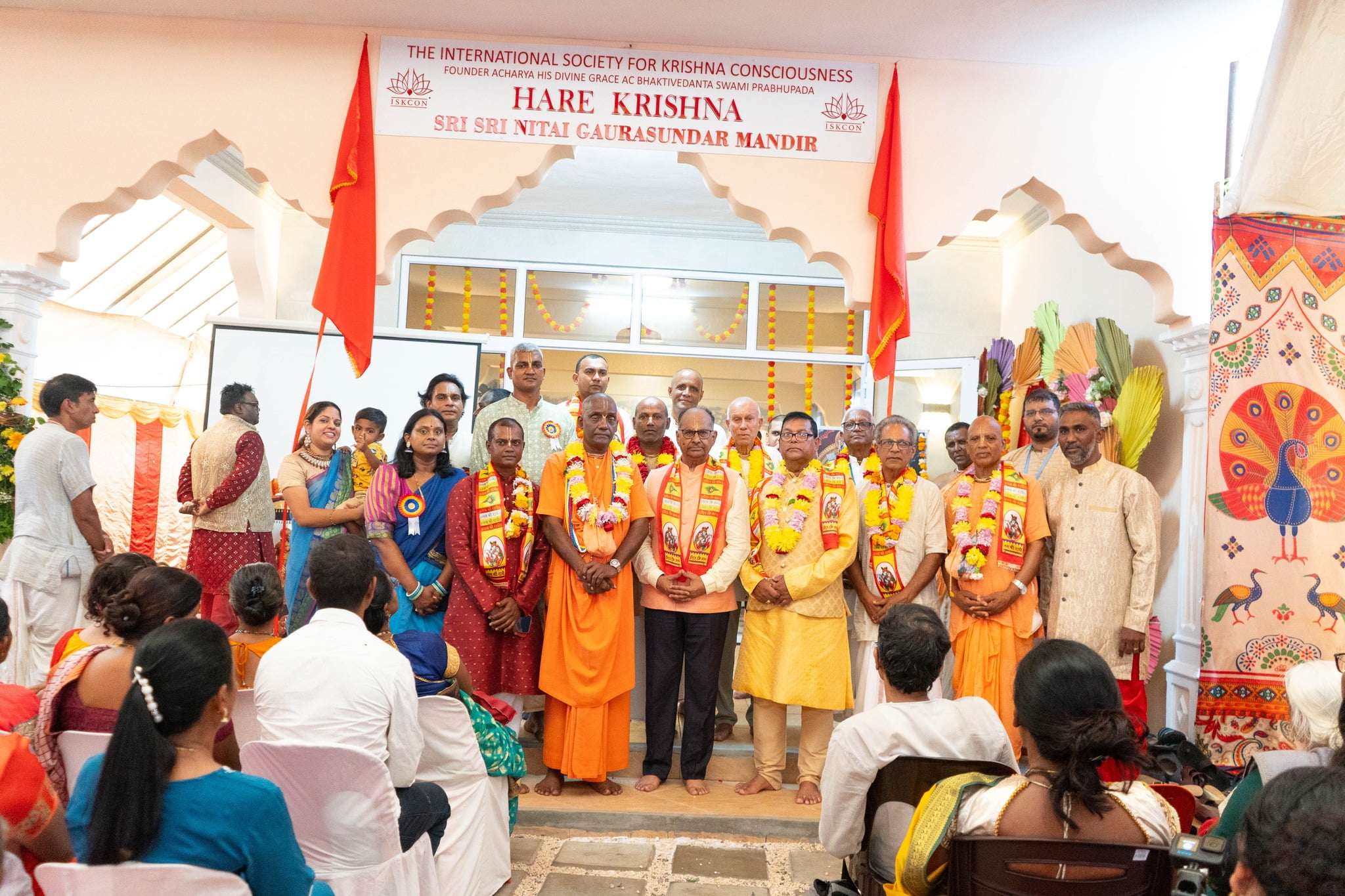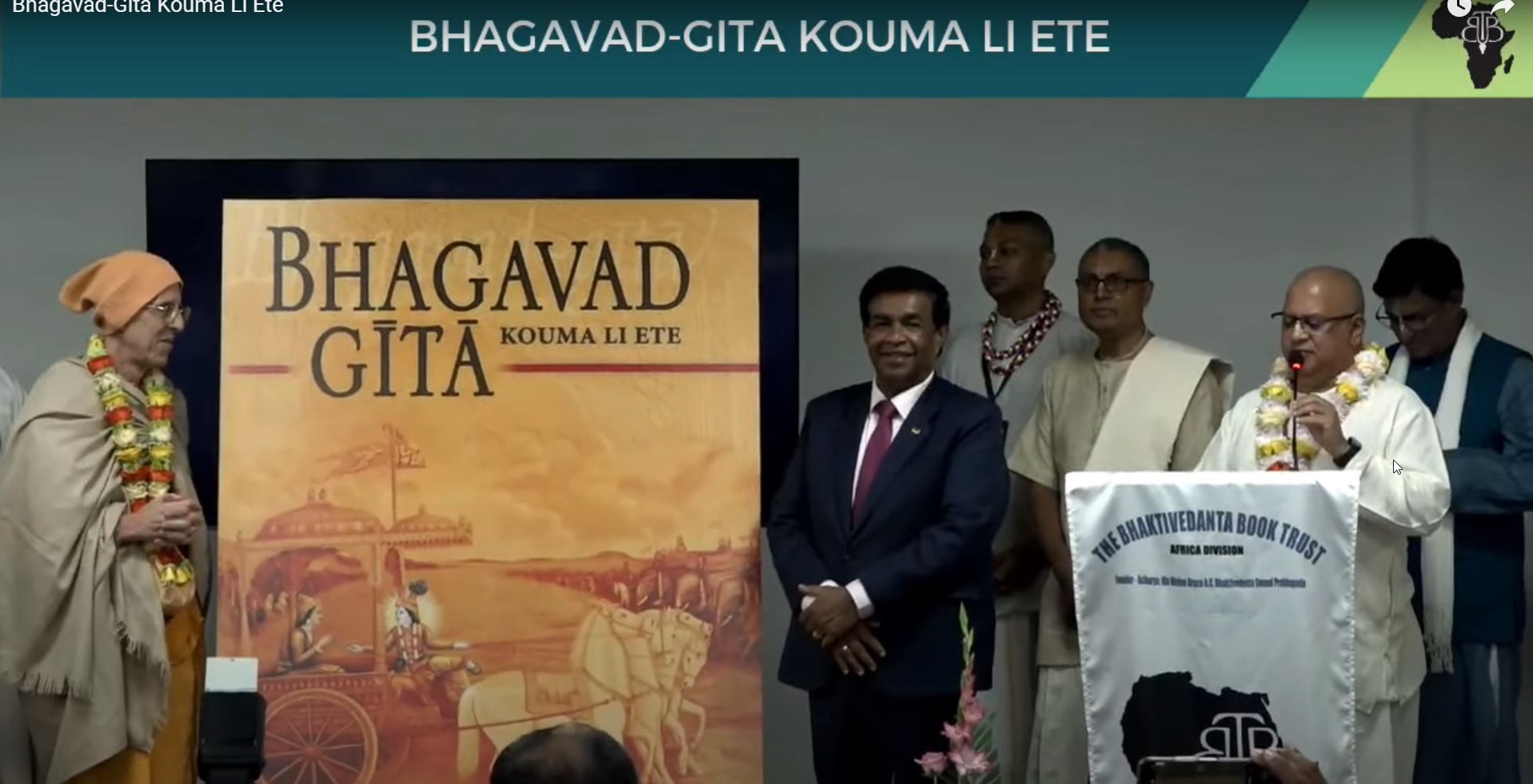How to Stop Stressing Out & Losing our Cool at Work
By Gadadhara Pandit Dasa | Oct 07, 2016

Meditation isn’t just for monks anymore.
While it’s true that meditation isn’t just for monks, I must admit that my serious exploration into meditation began in 1993, after my parents lost their Los Angeles-based multi-million dollar jewelry business, and we went almost completely broke.
This launched me into a life of introspection filled with questions such as, “Why is this happening to me?” and “What in the world did I do to deserve this?”
In 1999, I retreated to a monastery in India where my day started at 4:00 a.m. and involved a two-hour meditation practice along with many simple services like cleaning, cooking, and serving out lunch. This simple life of introspection, meditation, and service was so nourishing to my soul and calming for the mind, I decided to continue the lifestyle when I returned to the U.S. six months later.
The plan was to spend another six months in the monastery, but the joy of the experience and being able to share the messages and practices with college students and corporate professionals was so exhilarating that I ended up staying as monk in New York City for a full 15 years.
Then, feeling a need to have a family, I transitioned out of the monastic path but continue to encourage people of all backgrounds to try out the practice. It helps that there is a lot of scientific research backing the practice, so people don’t feel like they’re subscribing to a religion.
A recent article published by Scientific American suggests, “Meditation can decrease stress, lower blood pressure, and lift one’s mood.” With increasing competition and demands in the workplace, mindfulness is more relevant than ever.
According to the American Institute of Stress, 46 percent of our stress comes from our workload. This shouldn’t be so surprising since most of us spend more than half of our waking time at work or commuting to work.
The article also informs us that meditation can “increase the volume and density of the Hippocampus, a portion of the brain that is crucial for memory.” Generally, as we age, our focus and attention decrease, however “meditation counteracts this decay.” The article further suggests that meditating for as little as 12 to 20 minutes a day can “sharpen the mind.”
I would even dare to claim that we can’t afford not to practice mindfulness. Mindfulness means to become aware of your thoughts and emotions and bringing your attention to the present moment. This may sound like something you do at your local yoga studio and not relevant during the middle of the day, in a highly competitive job. But, this is exactly when meditation and mindfulness is most useful.
Mindfulness and meditation isn’t just for monks living in the forest.
A recent New York Times article tells us that Aetna has introduced meditation and yoga to over 13,000 employees and has seen an overall reduction in stress and improved productivity from their workforce. Other corporations such as Google and General Mills are using similar programs to benefit their employees by teaching them techniques to prepare for a potentially stressful meeting or just taking a few minutes during lunch to take a few deep breaths and clear the clutter in the mind.
Looking at the research, we can see that a bridge has been forming between what used to be a purely spiritual practice and the secular workplace. Of course, many might still feel wary about practicing meditation at work for fear of being ridiculed or judged. It is normal for people to fear and be cautious of things they don’t understand. It might take several years before meditation becomes widely accepted. It also took years for yoga to be accepted as a reputable health practice.
As with any other practice, for meditation to lower stress and anxiety and improve focus, memory, and productivity, it needs to be practiced on a consistent basis. If you only go to the gym once a month, you will experience minimal benefit. The same is true for meditation.
The more we practice, the stronger our mind will become, thus improving our ability to bring it back to the present moment.
The less distracted we are, the more we’ll get done. Relaxing the mind through breathing and focusing exercises during the workday will improve our clarity and even rejuvenate our energy.
The culture of mindfulness isn’t limited to meditation and becoming aware of our thoughts and emotions. It involves our ability to tame our ego and manage our emotions for the greater good of the team and organization. As we learn to become more aware of our thoughts and feelings, we begin to understand the motives behind our speech and actions. This increased awareness can be incredibly helpful in dealing with conflicts or during a stressful meeting when our perspective is being challenged or even disregarded.
How would we respond in such a situation? Would we have the patience to hear the reason our ideas were rejected? Would we lose our cool and lash out defending our point of view without gaining our composure because our ego was hurt? Or, do we shut down not being able to hear what anyone else has to say and check out for the remainder of the discussion?
Meditation and mindfulness can strengthen our mind and allow us to prevent our ego from taking control and making us act in ways that could damage our reputation and career. It is vital for us to remain in touch with our emotions and feelings and understand how they are influencing our actions. We need to learn how to turn off the switch when we start to lose our cool because once the floodgates of anger open, it’ll be too late.
Mindfulness in the workplace creates an environment where ego battles aren’t driving the company down. It’s a system where individuals are willing to put aside their own self-interest for the sake of the greater good; and where individuals are willing to appreciate the contributions of their co-workers instead of feeling threatened by them. It fosters an environment where cliques and office politics are strongly discouraged and where open and honest communication is encouraged so no one feels as if they’re being kept in the dark. It’s an environment where constructive feedback is balanced with a healthy dose of appreciation.
It definitely takes discipline to start sitting and doing nothing. Breathing, focusing, and expressing kindness to others, especially those who haven’t been kind, is not easy at first. Once we begin and experience the benefits, it’ll be equally difficult for us to stop.












